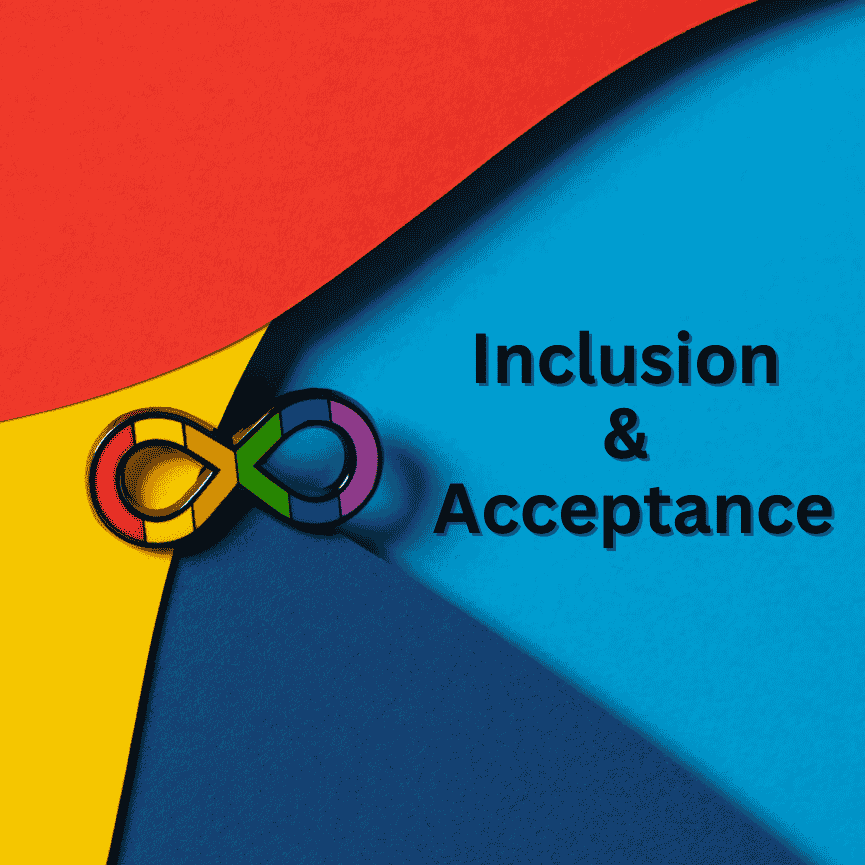
- Sep 04, 2024
- 132 Views
- 0 Comments
Fostering Inclusion & Acceptance For Children With Autism
Creating an inclusive and accepting environment for your autistic child is essential for their growth and happiness. It's about ensuring they feel understood, valued, and supported in every aspect of their lives, whether at home, in school, or within the community. Let's dive into some practical steps you can take to foster a positive social environment for your child.
Understanding the Importance of Inclusion and Acceptance
What Does Inclusion Mean for Autistic Children?
Inclusion for autistic children means they are not just physically present but actively participating and engaged in all activities. It’s about creating an environment where they can thrive, interact, and feel like they are an essential part of the group, despite their differences.
The Role of Acceptance in Social Development
Acceptance is the cornerstone of a child’s social development. When a child feels accepted, they are more likely to engage with others, build relationships, and develop social skills. This sense of belonging is critical in helping them navigate the complexities of social interactions.
How Acceptance Impacts Self-Esteem
Acceptance directly influences a child's self-esteem. When a child knows they are loved and accepted for who they are, they develop confidence and a positive self-image. This, in turn, helps them face challenges and setbacks with resilience.
Identifying the Barriers to Inclusion
Common Misconceptions About Autism
Misconceptions about autism often lead to exclusion. People may mistakenly believe that autistic individuals are incapable of socializing or participating in certain activities. These misunderstandings create unnecessary barriers that can hinder your child's ability to feel included.
Social Stigmas and Their Effects
Social stigmas surrounding autism can lead to isolation and exclusion. These stigmas often stem from a lack of understanding and awareness. The impact of such stigmas can be profound, affecting not just the child but also the entire family.
Overcoming Prejudice in Community Settings
To combat prejudice, it's important to engage with your community. Educating others about autism and advocating for your child's needs can help break down these barriers. Creating a network of supportive individuals within your community can also make a significant difference.
Creating an Inclusive Home Environment
Open Communication with Family Members
Inclusion starts at home. Open communication with all family members is crucial. Ensure that everyone understands what autism is and how they can support your child. This understanding fosters a loving and supportive home environment.
Teaching Siblings About Autism
Siblings play a vital role in your child's social development. Educating them about autism and encouraging empathy and understanding can help strengthen sibling bonds and create a more inclusive family dynamic.
Incorporating Sensory-Friendly Spaces
Autistic children often have unique sensory needs. Creating sensory-friendly spaces within your home can help your child feel more comfortable and secure. These spaces can include quiet areas, sensory toys, and calming colors.
Building a Supportive Community
Finding and Joining Autism Support Groups
Support groups can provide invaluable resources and connections. Joining a group allows you to share experiences, gain insights, and build a community of like-minded individuals who understand your challenges and triumphs.
Educating Neighbors and Friends
Your immediate community can play a significant role in your child's life. Educating your neighbors and friends about autism can help create a more inclusive environment. This can be as simple as having open conversations or sharing educational resources.
Encouraging Empathy and Understanding
Empathy is key to acceptance. Encouraging others to understand and empathize with your child's experiences can foster a more supportive social environment. This can be achieved through education, awareness campaigns, or simply leading by example.
Encouraging Positive Social Interactions
Facilitating Playdates and Social Activities
Organizing playdates and social activities tailored to your child's interests and needs can help them build social skills in a controlled, supportive environment. Ensure these activities are structured to provide clear expectations and support.
Role-Playing Social Scenarios
Role-playing can be a useful tool for teaching social skills. Practicing different social scenarios with your child can help them feel more confident in real-life interactions. This method allows them to learn and rehearse appropriate responses in a safe space.
Teaching Social Cues and Boundaries
Understanding social cues and boundaries can be challenging for autistic children. Explicitly teaching these concepts through examples and practice can help your child navigate social interactions more successfully.
Advocating for Inclusion in Educational Settings
Working with Teachers and School Staff
Collaboration with teachers and school staff is essential for creating an inclusive educational experience. Regular communication ensures that your child’s needs are met and that they are supported in the classroom.
Understanding Your Child’s Rights in School
It’s important to be aware of your child’s legal rights in educational settings. Understanding these rights empowers you to advocate for the necessary accommodations and support your child needs to succeed.
Creating an IEP (Individualized Education Plan)
An IEP is a powerful tool in ensuring your child receives the appropriate support in school. This plan is tailored to your child's specific needs and outlines the accommodations and services they require to thrive academically and socially.
Navigating Public Spaces and Activities
Preparing Your Child for New Environments
New environments can be overwhelming for autistic children. Preparing them in advance by explaining what to expect can help ease anxiety and make the experience more enjoyable.
Choosing Autism-Friendly Activities
Selecting activities that cater to your child’s interests and sensory needs can provide positive social experiences. Many communities offer autism-friendly events and activities designed to be inclusive and accommodating.
Handling Negative Reactions in Public
Unfortunately, negative reactions from others are a reality. It’s important to have strategies in place for handling these situations calmly and effectively, ensuring your child remains safe and supported.
Supporting Your Child’s Emotional Needs
Recognizing Signs of Stress and Anxiety
Being attuned to your child’s emotional state is crucial. Recognizing the signs of stress and anxiety allows you to intervene early and provide the support they need to cope with challenging situations.
Providing Coping Strategies
Teaching your child coping strategies, such as deep breathing or using a comfort object, can help them manage stress and anxiety. These tools empower them to handle difficult emotions more independently.
Promoting Emotional Expression
Encouraging your child to express their emotions in a way that feels safe and comfortable for them is vital. Whether through words, art, or other forms of expression, finding an outlet for their feelings can help them process and manage their emotions.
The Role of Technology in Social Inclusion
Using Apps to Enhance Communication
Technology can be a powerful tool for enhancing communication. Many apps are designed specifically to help autistic children communicate more effectively, whether through visual aids, text, or speech.
Virtual Social Spaces and Their Benefits
Virtual social spaces, such as online forums or gaming communities, can provide a safe environment for social interaction. These spaces allow your child to connect with others who share their interests, often without the pressure of face-to-face communication.
Managing Screen Time Effectively
While technology has its benefits, it's important to manage screen time effectively. Balancing screen time with other activities ensures that your child develops a range of skills and interests.
Celebrating Neurodiversity
Teaching Your Child to Embrace Their Identity
Celebrating neurodiversity starts with teaching your child to embrace their unique identity. Helping them understand that being different is not just okay, but something to be proud of, can boost their self-esteem and self-worth.
Sharing Success Stories of Other Autistic Individuals
Sharing stories of successful autistic individuals can inspire your child and show them what is possible. These stories can serve as powerful examples of what they can achieve, regardless of the challenges they face.
Promoting Neurodiversity in Your Community
Promoting neurodiversity in your community can help create a more inclusive environment for everyone. This can involve participating in or organizing events, workshops, or discussions that celebrate and educate about neurodiversity.
Creating a positive social environment for your autistic child is an ongoing process that requires patience, understanding, and advocacy. By fostering inclusion and acceptance, you are not only supporting your child's development but also contributing to a more inclusive society. Remember, every step you take towards inclusion is a step towards a brighter future for your child and all those who are part of the autism community.



Comments - 0 comments till now